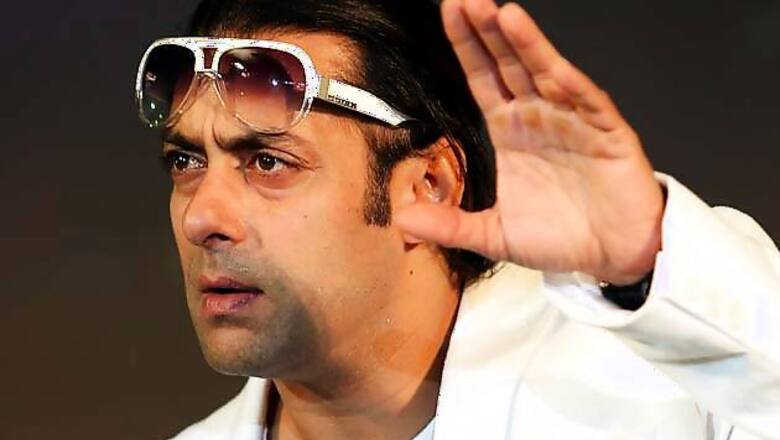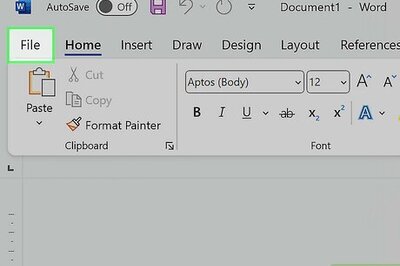
views
Mumbai: A sessions court today rejected an application filed by the prosecution in the 2002 hit-and-run case involving actor Salman Khan as it ruled that an accused cannot be forced to produce any document at the fag end of the trial.
"The application is not maintainable under the provisions of Indian Evidence Act as the court cannot force the accused to produce the driving licence," pronounced Judge DW Deshpande orally in the operative part of the order.
The accused can produce the licence at an appropriate stage if he so desires, said the judge, adding that, at this stage, the evidence is nearly over and hence the court cannot give a direction for producing the document.
The court had heard the arguments of both the sides on February 27 and reserved its order until today. Special Public Prosecutor Pradeep Gharat argued that Khan did not possess a licence when his car ran over people
sleeping on a pavement in suburban Bandra on September 28, 2002, killing one person and injuring four. He (Khan) obtained a driving licence only in 2004, as per the record available with Regional Transport Office, said the
prosecution.
The actor has denied that he was driving the car at the time of the incident. He has also disputed the RTO record. His lawyer, Srikant Shivade, opposed the prosecution's application today, saying it was not maintainable.
Khan's lawyer said the prosecution's application violated the fundamental right against exploitation enshrined in the Constitution as it had asked the accused to produce documents incriminating him. He argued that the prosecution should prove its case that Khan was not holding a driving licence without
asking him to produce it.
A Regional Transport Officer had earlier deposed in the court saying that Khan did not possess a driving licence when his car met with an accident in 2002. He also produced office records to show that Khan had obtained licence only in 2004, two years after the incident.
Earlier, the trial was conducted by a magistrate, but when the aggravated charge of culpable homicide not amounting to murder was added, the case was transferred to a sessions court and a fresh trial is being held.
Meanwhile, the court has put off till March 7 the hearing of arguments by Salman's lawyer on another application filed by the prosecution, seeking to rely upon evidence of two crucial witnesses recorded by a magistrate.
As the trial is being conducted afresh in the sessions court, the prosecution wants to bring on record the evidence of the two witnesses -- Dr Sanap and Ravindra Patil. The evidence includes their deposition as well as the cross-
examination by the defence before the magistrate. Dr Sanap had conducted the post-mortem of the person who died in the mishap. He has settled in the USA after retirement and is not available to the prosecution to depose in the
court.
Ravindra Patil, the police bodyguard of Khan, had lodged a complaint in this case soon after the mishap. Patil, who passed away during the trial, had given a statement to the magistrate earlier that he had warned Khan not to drive in a rash or negligent manner or else he would meet with an accident.
He had also alleged that the actor was under the influence of liquor, a charge denied by Salman. Khan's lawyer Shivade argued that prejudice would be
caused to his client if the court allows Patil's statement recorded earlier by a magistrate to come on record in the de novo (fresh) trial being conducted now. However, prosecutor Pradeep Gharat argued that no prejudice would be caused to Khan if the evidence tendered by Patil was taken on record by the court.
Gharat said the accused can take a defence at the time of final arguments and can also confront the investigating officer in cross-examination with regard to Patil's evidence. The prosecutor cited some judgements to support his
argument that the statements of Patil and Dr Sanap can be taken on record.
On September 28, 2002, the actor's car had rammed into a bakery in suburban Bandra and ran over people sleeping on the pavement outside, killing one person and injuring four others.
The case, dragging on for over a decade, took a twist when a city magistrate, after examining 17 witnesses, held that the charge of culpable homicide not amounting to murder was made out against the 49-year-old actor, and referred the case to the sessions court.
The charge of culpable homicide attracts a 10-year sentence while the earlier charge of causing death by negligence entails imprisonment of up to two years.



















Comments
0 comment